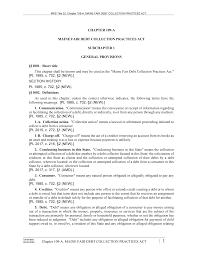
We'll be discussing what a Charge off means in accounting, and on your credit reports. A charge-off refers to a negative mark placed on a debt. A charge-off is a negative mark that remains on your credit report for seven year and can make it difficult to get credit. Because this negative mark directly impacts your credit score, it's important that you understand. A charge-off is reported by collection agencies when you do not make payments.
Charge-off
A charge off can cause serious damage to your credit rating. You could find yourself in this situation if the amount you owe is higher than your ability to pay it or if you don't make enough payments. There are steps you can take to restore your credit rating. First, you need to find out what happened in your account.
You will receive a charge-off notice if you are 90 to 180 day late with your payments. A chargeoff is not the equivalent of a collection. A collection agency will contact your to try and collect the debt. The collection agency could continue to pursue you until you pay the debt in full. If you don't pay off the account in full, the collection agency can sue you for a judgment.
Charge-off debt
A chargeoff is a discharge of debt. It happens when a creditor decides to cancel a debt and does not pursue collection efforts. It's a common practice today. This is because it is less expensive.

It is important that you remember that debt charges can have a negative impact on your credit score. It is important to repay the debt as soon and as quickly as possible.
Accounting charge-off
In accounting, a chargeoff is a debt which has been marked uncollectible. Lenders may charge off a debt if it is more than four to six monthly late and the debtor has not been able to pay. This is an internal accounting function that is performed to ensure accurate financial statements and compliance with accounting rules. However, this doesn't mean the debt is gone.
A charge-off occurs when the business that issued the loan has decided that the borrower cannot be repaid. Charge-offs are possible for many reasons. Charge-offs are something businesses must consider and many companies have an expense account.
Charge-off on credit report
A charge-off in your credit report could have serious repercussions for your credit rating. For up to seven years, the charge-off will appear on your credit report as a negative item. Additionally, a charge-off can affect your ability to obtain credit or lower interest rates. There are steps you can do to improve your credit score, and avoid a charged-off.
First, you should get an updated copy of your credit report. If you are not satisfied with a charge-off, you can dispute it with credit reporting agencies. You can do so over the phone or online. It is best to send a formal letter to credit reporting agencies. This will give you proof to support your claim. Within 30 days, the credit bureaus will investigate your dispute.

There are many misconceptions about charge offs
If a borrower is behind on their payments, charge-offs are the last option available to a lender. When a lender is not interested in continuing a loan with a borrower after trying unsuccessfully to settle the debt, charge-offs are possible. Charge-offs are considered a written-off debt by the lender, but the borrower remains responsible for paying the debt in full.
If consumers fail to pay their credit card bill on time for 180 days, the account is considered a charge-off. Once this happens, the lender will close the account. The account can no longer receive interest or be used for any new purchases. Consumers often think that charge-offs mean they owe nothing, and this is a misconception.
FAQ
How much debt is too much?
There is no such thing as too much cash. If you spend more than you earn, you'll eventually run out of cash because it takes time for savings to grow. So when you find yourself running low on funds, make sure you cut back on spending.
But how much do you consider too much? There isn't an exact number that applies to everyone, but the general rule is that you should aim to live within 10% of your income. You'll never go broke, even after years and years of saving.
If you earn $10,000 per year, this means you should not spend more than $1,000 per month. If you make $20,000 per year, you shouldn't spend more then $2,000 each month. And if you make $50,000, you shouldn't spend more than $5,000 per month.
It is important to get rid of debts as soon as possible. This includes student loans, credit card debts, car payments, and credit card bill. You'll be able to save more money once these are paid off.
It would be best if you also considered whether or not you want to invest any of your surplus income. If the stock market drops, your money could be lost if you put it towards bonds or stocks. You can still expect interest to accrue if your money is saved.
Let's suppose, for instance, that you put aside $100 every week to save. This would add up over five years to $500. After six years, you would have $1,000 saved. In eight years, you'd have nearly $3,000 in the bank. In ten years you would have $13,000 in savings.
In fifteen years you will have $40,000 saved in your savings. That's pretty impressive. You would earn interest if the same amount had been invested in the stock exchange during the same period. Instead of $40,000 in savings, you would have more than 57,000.
You need to be able to manage your finances well. You might end up with more money than you expected.
How do rich people make passive income?
There are two options for making money online. The first is to create great products or services that people love and will pay for. This is called earning money.
The second is to find a method to give value to others while not spending too much time creating products. This is called "passive" income.
Let's assume you are the CEO of an app company. Your job is developing apps. You decide to give away the apps instead of making them available to users. This business model is great because it does not depend on paying users. Instead, your advertising revenue will be your main source.
Customers may be charged monthly fees in order to sustain your business while you are building it.
This is how the most successful internet entrepreneurs make money today. They are more focused on providing value than creating stuff.
What is personal financial planning?
Personal finance is about managing your own money to achieve your goals at home and work. This includes understanding where your money is going and knowing how much you can afford. It also involves balancing what you want against what your needs are.
Learning these skills will make you financially independent. You won't need to rely on anyone else for your needs. You won't have to worry about paying rent, utilities or other bills each month.
And learning how to manage your money doesn't just help you get ahead. It can make you happier. You will feel happier about your finances and be more satisfied with your life.
What does personal finance matter to you? Everyone does! Personal finance is the most popular topic on the Internet. Google Trends shows that searches for "personal finances" have increased by 1,600% in the past four years.
People now use smartphones to track their money, compare prices and create wealth. These people read blogs like this one and watch YouTube videos about personal finance. They also listen to podcasts on investing.
In fact, according to Bankrate.com, Americans spend an average of four hours a day watching TV, listening to music, playing video games, surfing the Web, reading books, and talking with friends. That leaves only two hours a day to do everything else that matters.
When you master personal finance, you'll be able to take advantage of that time.
How can a beginner generate passive income?
Learn the basics and how to create value yourself. Then, find ways to make money with that value.
You might even have some ideas. If you do, great! If not, you should start to think about how you could add value to others and what you could do to make those thoughts a reality.
Find a job that suits your skills and interests to make money online.
For instance, if you enjoy creating websites or apps, there are lots of ways that you can generate revenue even while you sleep.
You might also enjoy reviewing products if you are more interested writing. Or if you're creative, you might consider designing logos or artwork for clients.
Whatever you decide to focus on, make sure you choose something that you enjoy. You'll be more likely to stick with it over the long-term.
Once you've identified a product/service which you would enjoy helping others to buy, you will need to determine how to monetize that product or service.
There are two main options. You could charge a flat rate (like a freelancer), or per project (like an agencies).
In both cases, once you have set your rates you need to make them known. This can be done via social media, emailing, flyers, or posting them to your list.
To increase your chances of success, keep these three tips in mind when promoting your business:
-
When marketing, be a professional. You never know who will be reviewing your content.
-
Be knowledgeable about the topic you are discussing. No one wants to be a fake expert.
-
Emailing everyone in your list is not spam. For a recommendation, email it to the person who asked.
-
Use an email service provider that is reliable and free - Yahoo Mail and Gmail both offer easy and free access.
-
Monitor your results. Track who opens your messages, clicks on links, and signs up for your mailing lists.
-
Your ROI can be measured by measuring how many leads each campaign generates and which campaigns convert the most.
-
Get feedback. Ask friends and relatives if they would be interested and receive honest feedback.
-
Different strategies can be tested - test them all to determine which one works best.
-
You must continue learning and remain relevant in marketing.
How to build a passive stream of income?
To earn consistent earnings from the same source, it is important to understand why people make purchases.
It is important to understand people's needs and wants. Learn how to connect with people to make them feel valued and be able to sell to them.
You must then figure out how you can convert leads into customers. The final step is to master customer service in order to keep happy clients.
Even though it may seem counterintuitive, every product or service has its buyer. If you know the buyer, you can build your entire business around him/her.
You have to put in a lot of effort to become millionaire. To become a billionaire, it takes more effort. Why? Why?
Then, you will need to become millionaire. You can also become a billionaire. You can also become a billionaire.
How does one become billionaire? It all starts with becoming a millionaire. All you need to do to achieve this is to start making money.
Before you can start making money, however, you must get started. Let's take a look at how we can get started.
Why is personal finances important?
A key skill to any success is personal financial management. In a world of tight money, we are often faced with difficult decisions about how much to spend.
So why should we wait to save money? Is it not better to use our time or energy on something else?
The answer is yes and no. Yes because most people feel guilty about saving money. Yes, but the more you make, the more you can invest.
If you can keep your eyes on what is bigger, you will always be able spend your money wisely.
To become financially successful, you need to learn to control your emotions. You won't be able to see the positive aspects of your situation and will have no support from others.
Your expectations regarding how much money you'll eventually accumulate may be unrealistic. This is because you haven't learned how to manage your finances properly.
Once you've mastered these skills, you'll be ready to tackle the next step - learning how to budget.
Budgeting is the act of setting aside a portion of your income each month towards future expenses. Planning will save you money and help you pay for your bills.
You now have the knowledge to efficiently allocate your resources and can start to see a brighter financial future.
Statistics
- Etsy boasted about 96 million active buyers and grossed over $13.5 billion in merchandise sales in 2021, according to data from Statista. (nerdwallet.com)
- While 39% of Americans say they feel anxious when making financial decisions, according to the survey, 30% feel confident and 17% excited, suggesting it is possible to feel good when navigating your finances. (nerdwallet.com)
- According to the company's website, people often earn $25 to $45 daily. (nerdwallet.com)
- Shares of Six Flags Entertainment Corp. dove 4.7% in premarket trading Thursday, after the theme park operator reported third-quarter profit and r... (marketwatch.com)
- Mortgage rates hit 7.08%, Freddie Mac says Most Popular (marketwatch.com)
External Links
How To
How to make money online
It is much easier to make money online than it was 10 years ago. It is changing how you invest your money. There are many ways to earn passive income, but most require a lot of upfront investment. Some methods are more difficult than others. Before you start investing your hard-earned money in any endeavor, you must consider these important points.
-
Find out which type of investor you are. You might be attracted to PTC sites (Pay per Click), which pay you for clicking ads. If you're looking for long-term earning potential, affiliate marketing might be a good option.
-
Do your research. Research is essential before you make any commitment to any program. Read through reviews, testimonials, and past performance records. You don't wish to waste your energy and time only to discover that the product doesn’t perform.
-
Start small. Don't just jump right into one big project. Instead, start off by building something simple first. This will allow you to learn the ropes and help you decide if this business is for you. You can expand your efforts to larger projects once you feel confident.
-
Get started now! You don't have to wait too long to start making money online. Even if your job has been full-time for many years, there is still plenty of time to create a portfolio of niche websites that are profitable. You just need a good idea, and some determination. Now is the time to get started!